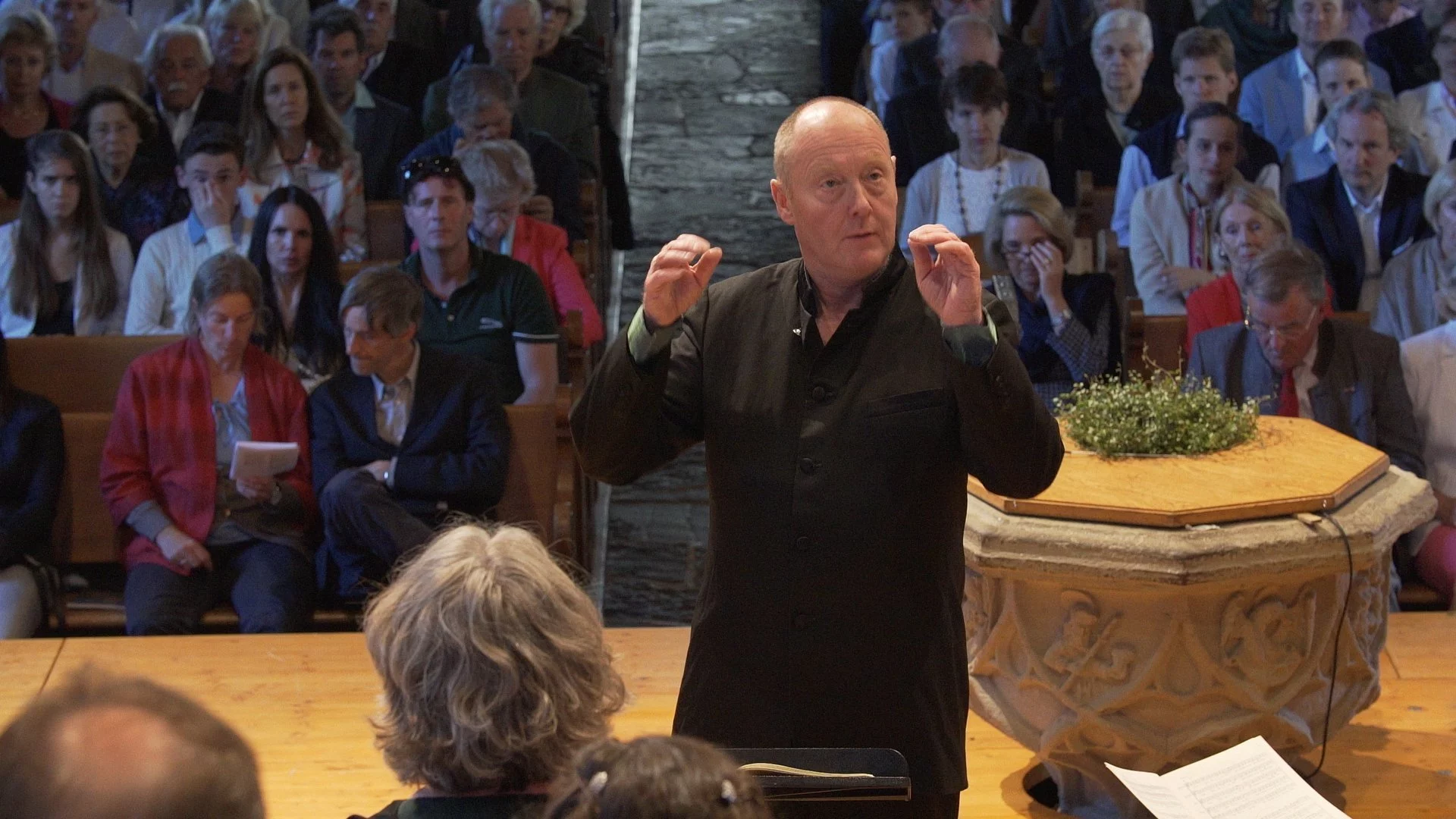Mozart's last masterpiece
Paul McCreesh, Artistic Direction
Gabrieli Consort & Players (London)
WOLFGANG AMADEUS MOZART: Requiem d-Moll KV 626
Recorded on 16 July 2016 in the Church in Saanen
Menuhin Memory Concert – Mozart’s Requiem
It’s always an extraordinary experience to see the British conductor Paul McCreesh and his Gabrieli Consort & Players perform. However, the two concerts on July 15 and 16 in the church of Saanen even added an additional dimension: We were invited to remember the legendary evenings in the summer of 1957, when one of the great adventures in classical music began: Back then four outstanding musicians came together: Maurice Gendron (cello), Benjamin Britten (piano and harpsichord), the tenor Peter Pears and of course Yehudi Menuhin, the new festival’s spiritus rector and founding father.
On the 15th of July, Paul McCreesh and the Gabrieli Choir, Consort & Players performed Wolfgang Amadeus Mozart’s Requiem in the presence of several members of the Menuhin family.
Legends…
What hasn’t been said, written, speculated, thought and even made up… when it comes to Mozart’s Requiem? One thing is certain: The anonymous commissioner was no messenger from afterlife (as Mozart was said to believe). It was no less a person than Count Franz von Walsegg who intended to pass off the masterpiece as his own composition. Mozart, who was taken ill, only managed to finish the first two sections. After his death, his widow Constanze, took charge of the process: She saw to it that the Requiem got completed and arranged for Mozart‘s student and assistant Franz-Xaver Süssmayr to deliver the finished composition to the (at the time) anonymous commissioner.
Despite great efforts by the most notable scholars, it is nearly impossible to work out, to what extend Mozart, realising that he would die soon, had prepared Süssmayr for this monumental task. Only in 1799 Constanze discovered the true identity of the commissioner (Mozart died 1791). Nevertheless, she refused to acknowledge that other composer than Mozart (Süssmayr and before him for a short period of time Joseph Leopold Eybler) had worked on the Requiem in order to promote her late husband’s fame (and to receive money from the work’s performance and publication).
Paul McCreesh uses Robert D. Levin’s version from 1991. The American musicologist created a whole new edition, reconstructing parts from Mozart’s sketches and in general correcting Süssmeyer’s sometimes clumsy orchestration



